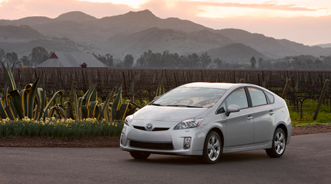Edmunds: Japanese Disaster Has Not Yet Swayed Shoppers

By subscribing, you agree to receive communications from Auto Remarketing and our partners in accordance with our Privacy Policy. We may share your information with select partners and sponsors who may contact you about their products and services. You may unsubscribe at any time.
SANTA MONICA, Calif. –
Although the disaster in Japan and its aftermath have wrought havoc on production for automakers, it doesn’t appear that consumer auto shopping behaviors have been impacted, according to Edmunds.com.
The site suggested that shoppers don’t seem to be anxious about impending price increases and a vehicle supply dearth.
In fact, Edmunds.com found that about 39 percent of visitors to the site during the week ending March 20 browsed one or more models from a Japanese model, which is relatively static from before the disaster.
The site further noted that this news “may not come as a shock so many industry analysts.” More than two-thirds (68 percent) of respondents in a recent survey on Edmunds’ AutoObserver.com didn’t think the disaster would lead to any impact on Japanese vehicle consideration.
“Our shopping data are telling us that not even this devastating earthquake was able to shake consumer confidence in Japanese cars,” stated Edmunds.com analyst Ivan Drury. “In fact, the natural disasters may actually strengthen the determination of consumers to remain loyal to their Japanese brands.”
For example, Toyota’s consideration rate is now slightly exceeding 19 percent, up from roughly 18 percent during the two weeks leading up to the earthquake.
Subscribe to Auto Remarketing to stay informed and stay ahead.
By subscribing, you agree to receive communications from Auto Remarketing and our partners in accordance with our Privacy Policy. We may share your information with select partners and sponsors who may contact you about their products and services. You may unsubscribe at any time.
Edmunds found that consideration for every other Japanese brand has been steady.
“The natural disasters have had hardly the negative effects that Toyota endured during its flap with unintended acceleration issues last year, when consideration for the brand tapered off almost four percentage points,” Edmunds indicated.
Moreover, Edmunds suggested that the trepidation surrounding Prius demand — as speculation swirls about supply shortage and increases in price — seems to be “unsubstantiated, at least for now.”
Consideration for the Prius has surged much stronger than other vehicles during 2011, but that increase has leveled off “in step with gas prices during the last week,” officials explained.
“Production issues are certainly a concern for automakers right now, but consumers aren’t thinking about that yet,” Drury noted. “Consumers are most influenced by factors that impact them directly, like safety issues and gas prices. Until there’s a tangible effect on the buying experience, we’re not likely to see any changes in shopping behavior.”


